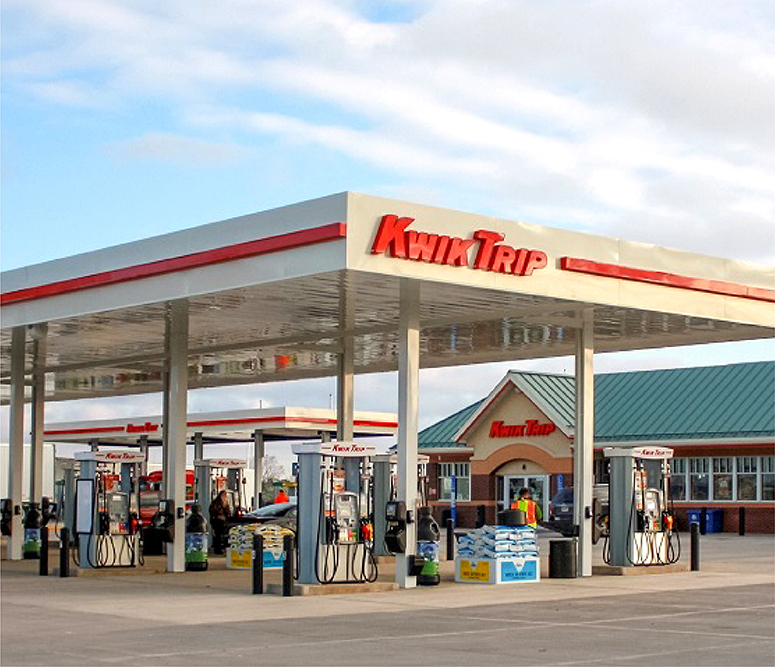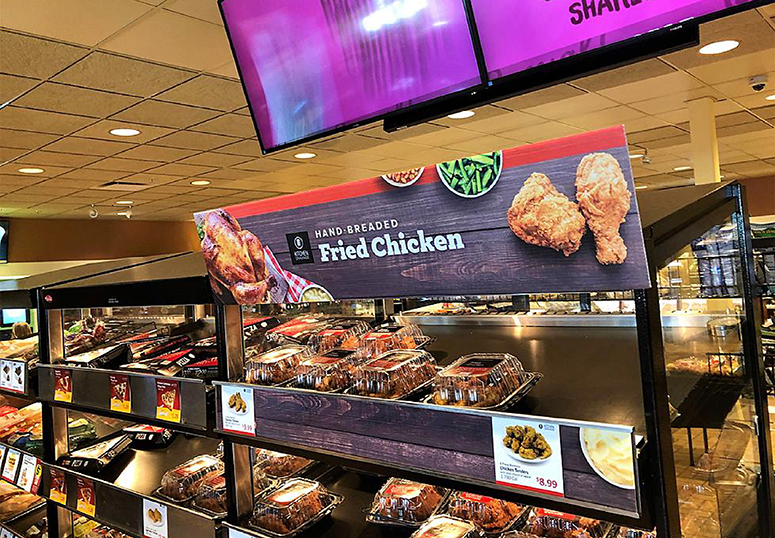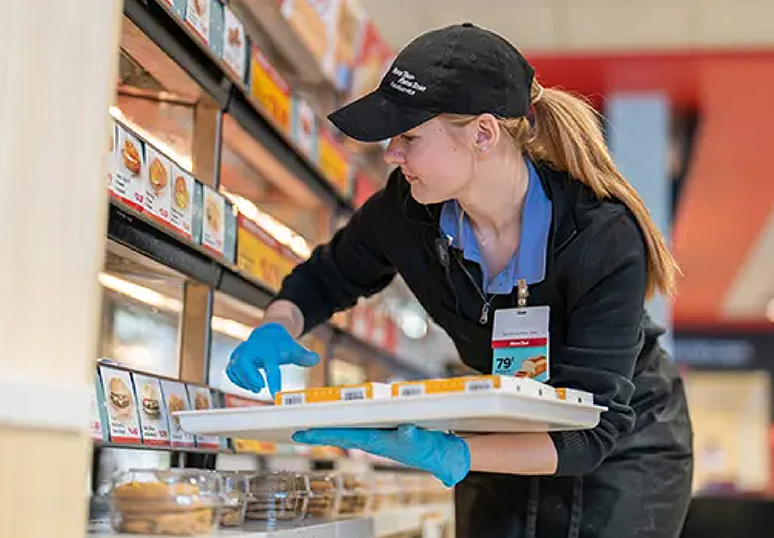


La Crosse, WI-based Kwik Trip is a family-owned convenience store chain that operates more than 870 locations with 25,000 plus co-workers. Originally known as a convenience store/gas station, the company has grown into much more. Operating for nearly six decades, Kwik Trip customers are increasingly visiting the chain for its on-the-go breakfast, lunch, and dinner foods as well as grocery store staples.
Stores in Wisconsin, Minnesota, and Michigan operate under the Kwik Trip banner, while stores in Iowa, Illinois, and South Dakota mostly operate under the Kwik Star banner. The company owns and operates its own dairy, bakery, and food production facilities from a central location and also cooks food on site at locations.
Capitalizing on America’s love of fried chicken, Paul Servais, Vice President of Food Service for Kwik Trip, and his team launched fried chicken offerings in 2019. At the time, Servais knew that to compete with other fried chicken chains, they would need the perfect recipe and the best infrastructure to support this tasty new offering.
“Currently, we offer fresh—never frozen—fried chicken at 725 stores, including hand-breaded dark and white meat fried chicken, tenders, roasted whole chicken, crispy fried chicken sandwiches, and boneless wings,” says Servais.
His secret is automating the volume and quality of oil used in the fryers, including managing oil delivery, recycling, filtration, and usage to deliver delicious and crispy chicken every time.
Cooking oil is essential for fried chicken, but bulk jugs are challenging to store, handle, and dispose of. Increasingly, commercial kitchens are adopting automated systems that streamline the entire oil management process—everything from delivery and storage to filtration, monitoring, and disposal, thereby maximizing oil life and cost, enhancing food quality, and creating a safer, more efficient environment for employees.
Kwik Trip began working with Restaurant Technologies when Servais launched fried chicken in 2019. Since then, the chain has used Restaurant Technologies’ Total Oil Management (TOM) system to comprehensively manage each location’s cooking oil. Restaurant Technologies delivers fresh bulk oil to tanks outside each location which employees can pump directly into fryers.
This eliminates the need for employees to manually transport cooking oil to and from fryers by hand with jugs or buckets, solving problems associated with handling, safety, and wasted time. It can lead to fewer employee injuries and workers comp claims since the staff is not handling hot oil.
With our automation solutions for convenience stores, Restaurant Technologies removes used cooking oil from a separate tank which ultimately gets recycled into biofuel.


As Kwik Trip’s fried chicken program expanded, the company started using the TOM portal to monitor and manage oil usage and quality at each location. The portal helps identify trends in quality, and why a store’s sales might be shifting.
If chicken gross profit dips, Kwik Trip employees first check the TOM portal to determine if there has been a cost increase, if the store is dumping oil too often, or not filtering according to SOPs, among other issues. “The food-to-oil ratio data in the portal helps us pinpoint any problem so we can quickly adjust and get back on track,” said Servais.

“With the help of Restaurant Technologies, our kitchens stay cleaner, we have less spilled oil, and our coworkers appreciate that they do not have to manually dump oil in the fryer and haul out waste oil. We hire many people from the food industry and as soon as they get into the kitchen and see our oil management system, they are instantly happy.”

“Restaurant Technologies provides an end-to-end oil management approach that offers a better work environment for our teams and is sustainable.”
Training from Restaurant Technologies also plays a vital role in its ability to deliver the best fried chicken. Kwik Trip has a team of 33 Foodservice District Leaders in six states devoted to food service and quality. Each of these team members has access to their stores’ TOM portal data and receive hands-on training from Restaurant Technologies. The training reviews how to use the TOM portal and interpret the data which helps the district leaders understand exactly when their stores are filtering, how long they are filtering, food-to-oil ratios and how much oil is in the tanks. All of this maximizes oil usage and efficiency which saves on the overall cost of oil.
When Kwik Trip first launched fried chicken, Servais focused on making the best product for the market to drive interest and sales. Several years in now, Kwik Trip fried chicken is growing in popularity and surpassing expectations. Maintaining high level operations management such as the cost of goods and oil, keeping oil fresh and filtered, and monitoring for efficient usage are keys to continued success.
With TOM implemented across more than 80 percent of its stores, Kwik Trip has realized improved labor safety, operational gains, and even sustainability – Restaurant Technologies recycles 100 percent of the used cooking oil collected to convert into biofuel or renewable diesel. Best of all, the process streamlines employee tasks, letting them focus on food and customers rather than cleaning and oil handling.
Kwik Trip has built a strong reputation for quality, convenience, and customer service, making it a popular choice for consumers. The chain continues to expand its footprint, opening new stores and entering new markets within the Midwest. As demand for fried chicken remains strong, Kwik Trip continues to grow its program and expand store sales.
This website uses cookies to enhance user experience and to analyze performance and traffic on our website. We also share information about your use of our site with our social media, advertising, and analytics partners. Learn more in our privacy policy and terms of service.